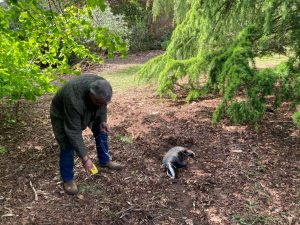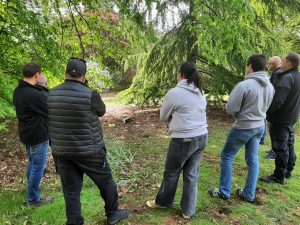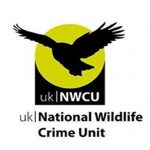Officers from police forces across England and Wales have been taking part in a new Forensics training programme on wildlife crime scenes.
Trainers from the UK National Wildlife Crime Unit (NWCU) and the Partnership for Action against Wildlife Crime (PAW)’s Forensic Working Group have devised a one day programme where police officers and Crime Scene Investigators (CSIs) are put through their paces on three different wildlife crime scenes. The training days have been taking place regionally with over 50 police trained on the first two sessions.
The NWCU assists police forces in the prevention and detection of wildlife crime in the UK. Police Wildlife Crime Officers often volunteer for this role, on top of their regular duties on the frontline. Police CSIs are also attending the courses and advise on the latest approved procedures in recovering forensic evidence.
The PAW Forensic Working Group (FWG) was established in 1996. Its membership is made up of representatives from the forensic science community, government departments, the Police, UK Border Force and non-governmental organisations. The FWG aims to support the application of scientific technologies to countering wildlife crime in the UK. It keeps abreast of developments in wildlife forensics and works to provide tools for wildlife law enforcers.
Staff attending the training days cover their legal powers on the seizure of evidence, how to preserve and secure forensic opportunities and utilise wildlife DNA sampling kits. They ‘attend’ a bird of prey poisoning, snaring of a badger/damage to a badger sett and the scene of a deer coursing crime with a variety of forensic evidence left behind by the offenders. As well as covering practical forensic recovery, officers discuss the importance of securing digital evidence such as mobile phone footage. Each of these three types of crimes have been set as priorities for UK wildlife crime policing.
The priority areas are the ones which have been assessed as posing the greatest current threat to either the conservation status of a species or which show the highest volume of crime and therefore they are those that are assessed as requiring an immediate UK-wide tactical response.
The training days are free of charge to police forces with venues being provided free of charge by police or partner organisations such as the RSPB and Yorkshire Dales National Park Authority.
Detective Inspector Mark Harrison of the UK National Wildlife Crime Unit said:
“This bespoke training package is the result of a long term collaboration with leading wildlife forensic scientists, police crime scene investigators and partners. It is designed to ensure frontline wildlife crime officers have the skills and expertise to help solve wildlife crimes and to maximise our success in bringing wildlife criminals to justice and protecting our communities from the harm they cause”.
“We would like to thank the public for their continuing support and the prompt reporting of wildlife crime to their local police force. If a crime is in progress call 999. If it is safe to do so and without putting yourself at risk, video or photograph the suspect and any vehicle they are using including registration number. For other urgent enquiries where evidence is at scene or there is an ongoing risk to others, such as a suspected poisoned bait, please call 101. For all other crimes, report online to your local police force“.
“If you wish to anonymously report a wildlife crime online please contact Crimestoppers”.
Click the links to learn more about the work of the UK National Wildlife Crime Unit and the PAW Forensic Working Group.







